This Commentary article by Peter Feaver, who served as special adviser for strategic planning to the NSC from 2005-2007, is about as positive a spin as can be put on the failures made in prosecuting of the Iraq War, complete with a very rosy appraisal of how the Surge managed to turn things around in the nick of time. About the only sentence in the article that I agreed with was this one: The Petraeus-Crocker report to Congress will no doubt offer further evidence that the new approach is working but is far from having completed its assigned task. No […]
Middle East & North Africa Archive
Free Newsletter
Here’s Marc Lynch trying to turn charcoal into gold: . . .the campaign could be positive if it restored the sovereignty of the Iraqi state over Basra. I’ve been arguing for many months for the urgency of establishing some semblance of effective Iraqi sovereignty, defined in Weberian terms as a monopoly on the legitimate means of violence. The best-case scenario here might be that the Sadr-Maliki truce evolves into a shared effort to extend the sovereignty of the Iraqi state, with the Sadrists and the government working together to curb extralegal armed activities. I don’t think this was the real […]
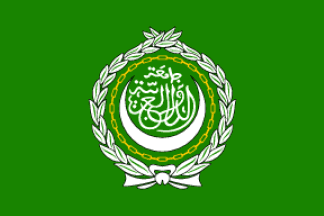
TEL AVIV, Israel — The annual Arab League summits have long inspired cynics to quip that the meetings should not be expected to produce much more than yet another declaration announcing that “the Arabs have agreed not to agree.” Among commentators, this year’s summit in Damascus has produced considerable agreement: the editor-in-chief of the London-based pan-Arabic daily Asharq Al-Awsat dismissed the meeting as early as February with the harsh verdict that all “the Arab summits, without exception, are unsuccessful, but it seems that the Damascus summit will be the biggest failure of them all.” In the days preceding the summit, […]
As critical as I’ve been about recent developments in Iraq, I thought I’d link to this Foreign Policy article by Jason Gluck that suggests that the Iraqi political process is not as hopeless as I’ve suggested. Yesterday I mentioned the challenge of finding metrics that actually reflect what’s going on in Iraq, as opposed to what we want to see. The kind of legislative compromise Gluck describes is tough to quantify, but significant. Hopefully it’s not also irrelevant in light of this week’s violence. Meanwhile, in a sign that Maliki’s crackdown on Moqtada al-Sadr’s Mahdi militia was either pre-mature or […]
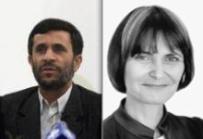
Switzerland’s Social Democratic foreign minister Micheline Calmy-Rey has a subtle approach to the issues that fall within her area of responsibility. When it is a matter of deciding between Swiss business interests and the upholding of human rights, her answer is: “we can do both!” The latest example is the gas deal between the Laufenberg Electricity Company (EGL) and Iran that was signed last week in Tehran in the foreign minister’s presence. Calmy-Rey let it be known that she used the visit to Tehran to explain matters of particular concern to her: among them the “pursuit of the human rights […]
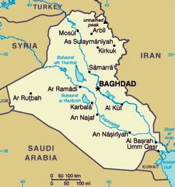
Various explanations have been posited to make sense of the ongoing Iraqi Army operation codenamed Sawlat al-Fursan (Attack of the Knights), which has been directed against the Jaysh al-Mahdi (JAM) throughout the south of Iraq. Marc Lynch summarizes the various theories that have gained traction in explaining the motivations for launching the Basra offensive at this juncture, and most of the more persuasive arguments focus on the motivations and rationales of the Iraqi actors: [1] “Iran is liquidating its no longer useful proxies” theory (which would fit this general line of speculation about Iran’s doubts about Sadr and preference for […]
Hampton makes a good point that the violence in Basra is occurring in the aftermath of British withdrawal, with the subsequent power vacuum it left. Spencer Ackerman elaborates on that here (via Andrew Sullivan), drawing some conclusions along the way about what America needs to consider in fashioning its own eventual troop withdrawal. So, yes, this isn’t a failure of the Surge in operational (ie. tactical) terms, since the Surge took place in another province. But remember that in January 2007, when President Bush announced plans for the Surge, the British had all of 7,000 troops in Basra province. A […]
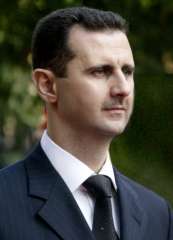
This was supposed to be Syria’s moment in the sun. Syrian President Bashar al-Assad had held out great hopes for the events scheduled for the final days of this month. Starting on March 29, Syria will host this year’s Arab League summit. The gathering in Damascus was supposed to bring together the heads of state of the league’s 22 members, providing Syria with a bright stage on which to display its regional stature while bathed in the warm glow of Arab unity. But just like Arab unity and Syria’s regional stature, a successful summit was always a doubtful proposition. By […]
If what we’re hearing about the the intra-Shiite fighting in Basra is true, it’s an operation that’s been signalled for weeks, which means it’s been planned for longer than that. It’s also pretty obvious, as Phillip Carter observes over at Intel Dump, that Prime Minister Nuri Kamal al-Maliki is using the Iraqi security forces to consolidate his hold on power. Which basically means that the factional differences that were supposed to be resolved in the political arena through reconciliation are being settled in the street with mortar and rocket fire, and that this was the plan for quite a while. […]

One of the most complex issues related to the “Global War on Terror” that has confronted policy makers, military commanders, legal advisors, and even federal courts has been determining where the “battlefield” in this war starts and ends. This is not surprising. The characterization of the struggle against international terrorism as a “war” by the United States had the effect of forcing the proverbial square peg into the round hole. The law that had evolved up to Sept. 11, 2001 to regulate “war” had simply not addressed a military struggle between the armed forces of a nation-state and operatives of […]
Marc Lynch gave a comic roundup of yesterday’s Middle East nuclear energy news (the U.S. and Bahrain signed an MoU, and the UAE announced the start of their partnership with France) before wondering, “Seriously, does anyone else find the GCC’s rush to acquire ‘peaceful nuclear energy programs’ and the West’s seeming enthusiasm for the prospect a bit odd?” The long answer is here, a WPR article by yours truly on France’s nuclear diplomacy in the Muslim world, which I think gives a good summary of why, despite some basic security concerns, there’s no real need for alarm just yet. But […]
Over the course of a well-needed break for the Easter weekend, I actually got around to reading some printed news, which is how I ran across this interview in the Nouvel Observateur with Iraq specialist Pierre-Jean Luizard. In it he expresses some of the broader strategic flaws of the Anbar Awakening which have been ignored due to the tactical success the strategy has had in terms of reducing Sunni violence directed at American forces. Like most criticisms of the Awakening, Luizard’s analysis begins with the vacuum that passes for the Iraqi state. But Luizard suggests that the dynamic has become […]
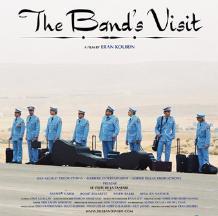
Sometimes a comedy can break your heart. “The Band’s Visit,” a highly acclaimed Israeli movie now showing around the world, tells the story of a charming group of Egyptian musicians, the Alexandria Ceremonial Police Orchestra, who come to Israel to play at the opening of an Arab Cultural Center. A series of misunderstandings leaves the musicians — resplendent in their sky-blue uniforms — stranded in a tiny Israeli desert village. It is a sweet comedy of coexistence and shared humanity. The Israelis bring the Egyptians, dignified in their plight, into their homes. They get to know each other at the […]
Most Iran-watchers agree that the recent parliamentary elections represent a mild setback for President Mahmoud Ahmadinejad. Pragmatists led by Hashemi Rafsanjani and Ali Larijani roughly split the conservative vote, and even reform candidates, who were suppressed from the ballots in large numbers, managed to pick up some seats. The resulting tension has immediately made itself felt in the standoff that has galvanized world attention and divided the Iranian leadership: the decision of whether or not to pursue Tehran’s controversial policy of implementing Daylight Savings Time: Iran will again use daylight saving time this year despite earlier opposition from President Mahmoud […]
I’ve shied away from discussing the fifth anniversary of the Iraq War because most of the analysis I’ve seen didn’t seem to add anything new to our understanding of the situation on the ground or the terms of our domestic debate. The former remains cloudy and depends largely on whether you believe the Surge has been a tactical success or a strategic miscalculation, and as a consequence, the latter seems reduced to the realm of tactics and policy, to the detriment of strategy and history. A satisfying exception is Simon Serfaty’s monograph, A Bad War Gone Worse, from The Washington […]
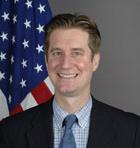
Last month, a remarkable transformation occurred in the controversial Nabucco gas pipeline project — or at any rate in the public perception of the project in the English-speaking world. As recently as last fall, in fact, there was barely any public perception of the Nabucco project in the English-speaking world because there was barely any coverage of the project in the English language media. (For a rare exception, see “Iran-Turkey Gas Deal Gives New Hope for EU Nabucco Pipeline” on World Politics Review.) In the central European press, on the other hand, the project was widely heralded as a crucial […]
While Iran’s political system is notoriously opaque, we often hear that its final arbiter is the Supreme Leader Ayatollah Khamenei. And as often as not, that’s where things rest. That’s what makes Karim Sadjadpour’s Carnegie Foundation report, Reading Khamenei, a must read. Sadjadpour gives a rundown of Khamenei’s origins, his structural hold on power, and through a reading of thirty years’ worth of speeches, re-constructs his worldview. I highly recommend the full report for anyone interested in the challenges of a forward-looking Iran policy, but here’s a quick “cut & paste” job of some highlights that seemed noteworthy: As Supreme […]
